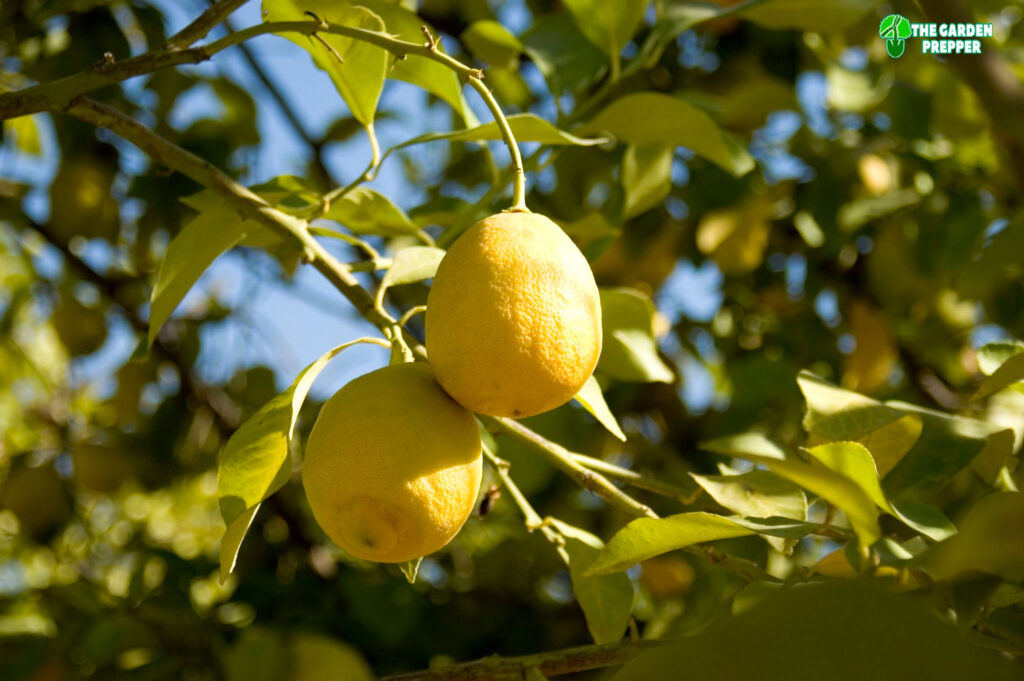Lemon trees are thorny and evergreen citrus trees that don beautiful green leaves and bloom purplish-tinted white flowers. These trees would also produce yellow lemons with an acidic juice you can enjoy on various dishes and drinks. They thrive in USDA hardiness zones 9A to 11 and thrive in low frost areas.
While they grow fast and are fairly easy to care for, they are still prone to a few problems, particularly as the season gets hotter. Some have reported of their lemon tree losing leaves in summer!
But what causes this poor leaf growth, especially during the summer? Read on to find out!

Lemon Tree Losing Leaves in Summer
Leaf drop is actually a common issue that occurs in citrus trees and plants, including lemon trees. The causes are stress-related and while it isn’t serious, it’s quite alarming and can cause worry as you see your lemon tree leaves dropping.
So, what exactly would cause your leaves to drop all of a sudden during summer? Here are a few reasons to take note of:
1. Nutrient Deficiency
Leaf drop occurs in lemon trees that are deficient in key nutrients, including iron and magnesium. You will know if your lemon tree suffers from a magnesium deficiency if the leaves are dropping freely, or if it is yellowing or bronzing. If it suffers from an iron deficiency, it would have thin and small leaves that would drop early on.
You can remedy this by applying Epsom salt to your soil, which gives it more magnesium. For iron deficiency, apply iron chelates.
It’s best to perform a soil test using soil test kits you can get from gardening centers or online shops. This will show you what your plant lacks or has too much of, so you can make the appropriate changes.
2. Overfertilization
Too much fertilizer can cause leaf drops. Younger lemon trees would require only light fertilizer during their first year, which is around 1 tablespoon monthly during the spring and summer seasons. After their first year, they should be fertilized every 4-6 weeks, gradually increasing the fertilizer every year.
You will need to use fertilizer for citrus or a well-balanced 8-8-8 fertilizer. If you add TOO much fertilizer, especially during the hot summer season, this can result in your lemon tree losing leaves.
Also, you have to make sure you apply fertilizer properly. Sprinkle it evenly and cover the whole root zone, avoiding piling it at the base, which would cause damage.
3. Pest Infestation
Certain pests would cause leaf drop on citrus trees. One particular pest is the California red scale, which is armored scale lemon trees are susceptible to. These pests would cause yellowing leaves and leaf drop, active during the late summer to early fall.
You can control these pests by introducing natural predators to the crop, like parasitic wasps.
4. Root Rot Infection
Root rot is an infection that affects lemon trees, causing a lot of symptoms, including leaf drop. This is usually caused when your lemon tree trunk stays wet, either from poor soil drainage or overwatering. Unfortunately, we tend to overwater during the summer to compensate for the heat, but this might end up with us drowning out plants from root rot.
Prevent root rot by planting your lemon trees in places that have good drainage and without having to irrigate them regularly. It’s best to reduce irrigation to prevent root rot from becoming severe. But if the infection is too severe, you will have to remove the lemon tree and dispose of it properly, then fumigate the area.
5. Underwatering
While overwatering is a huge issue, the same goes for underwatering your plants. We will need to water our lemon trees more frequently come summer, but some gardeners tend to stick to the usual schedule, watering them once a week or less (just as they would do during the spring, fall, and winter).
However, your lemon tree may require more watering, with most gardeners needing to water it every other day. If left thirsty, your lemon tree’s leaves are most likely to drop during the hot summer season.
You don’t need to water it every day or every other day, though you will need to check if it does through the soil. Stick your finger on the soil and see if the top inch is moist or dry. If dry, it needs watering, and if moist, you can wait another day or two until watering is necessary.
6. Light and Temperature Issues
Lemon trees love light, but too much of it, especially during the summer with direct and hot sunlight, can cause your leaves to burn and drop. The same goes for if your lemon tree were exposed to environments near radiators or fires. If your lemon tree has to stay in dry areas (when indoors), do mist it regularly.
Avoid placing your lemon trees under full direct sunlight for long periods (6-8 hours of sun exposure daily is great), and take it away from areas with radiators, air conditioning, and fires. Furthermore, avoid leaving it in areas that are above 65 degrees F for optimum growth. For those living in hot and sunny climates, give your outdoor lemon trees morning and afternoon shade.
Wrapping It Up
When it comes to caring for your lemon trees, you have to be wary during the hot summer season. Sure, they’re used to the tropical climate, but too much heat can cause leaf drop if left uncared for properly. By providing it the correct nutrients, water, fertilizer, soil, and light, it can thrive all year long with its leaves growing beautifully.
Hopefully, this article fully informed you about a lemon tree losing leaves in summer. If you are currently experiencing this, then look into the information and tips shown above for guidance. Good luck!